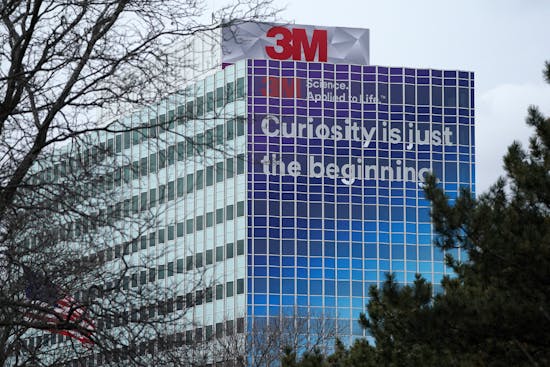After 16 bellwether trials failed to resolve a massive legal battle, a federal judge has ordered mediation between attorneys for 3M and military veterans who claim the company's earplugs were defective.
Casey Rodgers, a U.S. District Court judge for northern Florida, on June 10 appointed a special master to mediate a settlement. The mediation session — which will last at least three days — is slated to begin July 15.
"After three years of intense litigation, this matter has come to a critical juncture," Rodgers wrote. Without a settlement, she wrote, the entire federal judiciary will be strained by the sheer volume of earplug cases, which number 233,883 as of June 10.
"The amount of judicial resources required to handle this number of cases is staggering," she wrote.
The tidal wave of lawsuits centers on the Combat Arms or CAEv2 earplug, which a company called Aearo Technologies began selling to the U.S. Army in the late 1990s. 3M bought Aearo in 2008 and continued selling the CAEv2 until 2015, dominating the military earplug market.
Veterans and active military personnel allege the earplugs were flawed, causing hearing loss and tinnitus. 3M maintains the products were safe.
The claims against 3M are roped together in a multidistrict litigation, or MDL, case in U.S. District Court of northern Florida. MDLs are used in the federal court system for complex product-liability matters with many separate claims.
They commonly feature bellwether trials, which set a tone for settling all claims.
Earplug plaintiffs won 10 of the 16 bellwether trials, which ended last month, racking up nearly $300 million in compensation from 3M. The Maplewood-based industrial giant won six cases and is appealing those it has lost.
After the 16 trials, both sides should have "unparalleled insights into the strengths and weaknesses of the various claims and defenses and how juries respond to the evidence," Casey wrote in ordering mediation.
"There can be no reasonable dispute that the litigants in this MDL have more data points about individual claims, and the broader whole, than any other litigants in the country."
Court-ordered mediation is standard, but the size and potential impact of the earplug litigation isn't, said Alexandra Lahav, a professor at the University of Connecticut School of Law.
"I don't think there has ever been as big an MDL as this one … The judge is saying it would be a lot better for the [judicial] system if the two sides got together and solved this," Lahav said. "She's not threatening them so much as guilting them."
Without a settlement, Rodgers will remand cases back to the federal courts from which they came. While some of the country's 94 federal court districts will receive more cases than others, "likely no district will be spared the burden," Rodgers wrote.
Michael Sacchet, a Minneapolis attorney with Ciresi Conlin who has tried five bellwether cases for plaintiffs, said Minnesota is "likely to be the most affected venue in the country." At least 10,000 of the cases could be tried in the state.
That's because Minnesota is 3M's principal place of business, and many employees or ex-employees live here — a benefit for plaintiffs' attorneys aiming for direct testimony in a courtroom, Sacchet said.
Sacchet declined to speculate on mediation outcomes, but he said that "in some ways, it's a natural time for the parties to come together and discuss a potential settlement."
3M declined to comment.
Lahav said both sides have a least one incentive to settle: burgeoning trial costs. She estimated each bellwether trial cost each side $3 million to $5 million.
They'll split the tab for the special master overseeing mediation.




